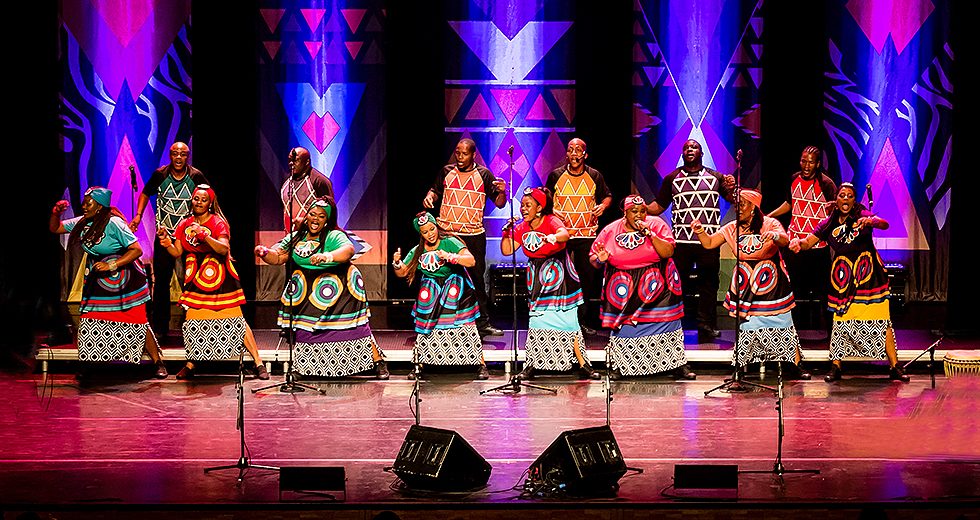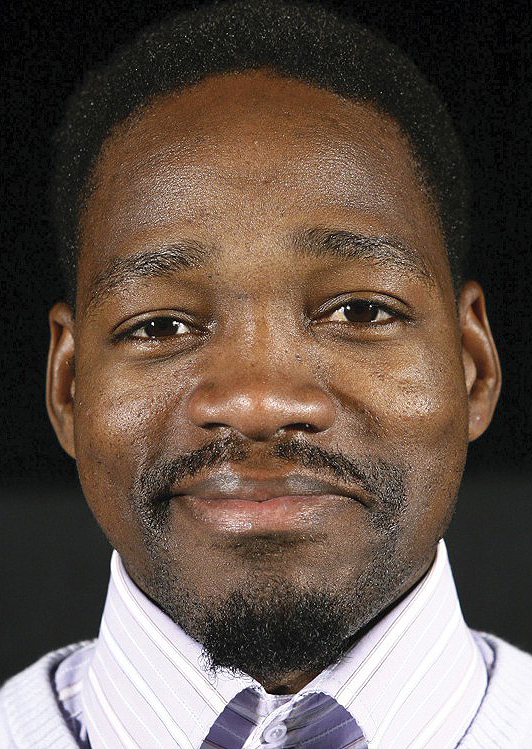
Fans of the Soweto Gospel Choir, the Grammy Award-winning South African choral ensemble, may think they’re just coming to hear an evening of great music. But the group performs for greater purposes.
This year’s tour, which stops Nov. 16 at Symphony Center, is titled “Songs of the Free: A Concert Honoring Nelson Mandela.” The tour commemorates the 100th anniversary of the birth of Mandela, who helped to end apartheid, South Africa’s institutionalized system of racial segregation, and then became the country’s first black president in 1994. Its “We give people a picture of what is happening in South Africa,” said Diniloxolo Ndlakuse, the choir’s music director. “The culture has changed. We are a democratic nation now, because Nelson Mandela played a role.”
In addition, everything the choir sings is for God, but “struggle songs” also tell of working for social justice in South Africa. Even for audiences not specifically interested in the religious side, “music is spiritual and universal,” he said. “It has the power to restore and revive, whether gospel or not, and it reaches straight to the heart.”

Diniloxolo Ndlakuse is the music director of the Soweto Gospel Choir.
But the gospel message also has considerable overlap with the universal desire to be free. When the choir is on a long tour, its members do regular workshops with local chorus groups to talk about the culture of South Africa and “explain why we sing freedom songs,” Ndlakuse said. Those interactions are the most rewarding part of a long tour, he said, and help to make up for the rigors of the road, including separation from family and cold weather in North America.
And to keep a tour program fresh and vibrant, “we call to God for creativity, for strength, for whatever we sing to the audience,” he said. “Music is art, and art is creativity.”
Since its founding in 2002, the Soweto Gospel Choir has received two Grammy Awards, for the albums “Blessed” (2005) and “African Spirit” (2007). Ndlakuse, a member of the choir since 2007, has vivid memories of the audition process, which he compared to a TV reality show. “You go and stand in line, and then you sing, and then you get a callback. It’s quite nerve-racking.” But the stakes are high; for most of the choir’s 30-plus singers, it is a full-time job.
“To be in our choir, first of all, you need to know how to sing,” said Ndlakuse, who succeeded co-founder David Mulovhedzi as music director after his death in 2009. “Second, you need to believe in God, because we are a gospel choir, and we spread good news. And you need to be comfortable with different genres and languages, and have some dance background.”
Bright costumes and swaying choreography are integral to the choir’s experience, and almost every member speaks four or five languages; Ndlakuse himself speaks six, including all the languages that the choir sings in. The costumes “reflect where we come from as a country,” he said. “We are a rainbow nation.”
As music director, Ndlakuse composes some original songs for the choir, and arranges more from various traditions, including African-American spirituals and gospel tunes. Other influences on the group come from the long list of international artists they have worked with, such as Celine Dion, Peter Gabriel, Josh Groban, U2, Jennifer Hudson and many more.
Although Christianity came to South Africa by way of white missionaries and colonists, the faith has put down its own roots, and a large majority of the country now identifies as Christian. “In South Africa, we are so versatile,” Ndlakuse said. “We have 11 official languages, and we have lots of churches — charismatic, Anglican, Catholic — but we all believe in one God, and that is what makes us rooted.”
David Lewellen is a Milwaukee-based journalist.